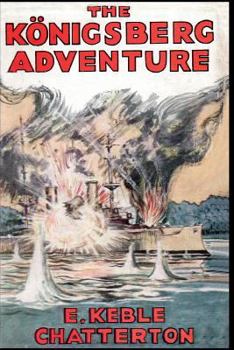The Konigsberg Adventure
Edward Keble Chatterton (1878-1944) was a sailor and prolific writer who is best known for non-fiction works. His voyages across the English Channel, to the Netherlands, around the Mediterranean and through the French canals led to many articles and books. Joining the R.N.V.R. at the outbreak of the Great War he commanded a motor launch flotilla, leaving the service as a Lieutenant Commander. In 1918 he was appointed to the Naval section of the Official History Committee, where he worked until 1922.
Keble Chatterton is unquestionably one of the most important and vivid nautical authors of the past century using both first hand accounts from the people that were there at the time and having the opportunity to access to official documents. Chatterton recorded the maritime history of Britain at its most momentous point of change, from sail to steam, from the advent of the submarine to the carrier. Writing with narrative flair and a passion for the subject, Chatterton places the reader in the middle of this full and complete account of the sinking of the blockaded World War 1 armoured cruiser of the German Kaiserliche Marine, SMS K nigsberg.
In the upper reaches of the Rufiji River delta, in what is now Tanzania, lie the rusting remains of the Imperial German cruiser Konigsberg and her attendant fuelling collier Somali, both destroyed by gunfire from Royal Navy warships during the early months of the First World War. The outbreak of the First World War saw Konigsberg assume its new role of surface raider. This lasted only a few weeks due to a combination of coal shortages and mechanical defects, which forced her to seek shelter for repair in the muddy backwaters of the Rufiji Delta. In her most major foray, she engaged and destroyed the British cruiser H.M.S. Pegasus at Zanzibar on 20 September 1914, and her captain struck the colours to avoid further bloodshed. This volume is based entirely on original documents and first hand material from actual participants.
Related Subjects
History




